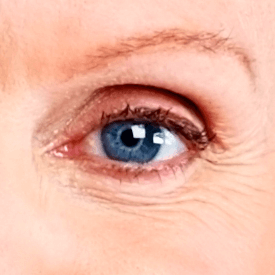

ABOUT MACULAR PUCKERS
A macular pucker can have a profound effect on a patient’s everyday life, resulting in distorted vision and blurriness that makes it difficult to complete necessary activities such as reading and driving. A macular pucker results from scar tissue that has formed on the retina, the central tissue in the back of the eye that helps with visual acuity and clarity. Ocala, FL board-certified retina surgeon Dr. Shalesh Kaushal can help restore a patient’s vision, addressing the macular pucker and the retinal scar tissue through a number of different treatment options. Patients who are suffering from this condition are encouraged to schedule a consultation as soon as possible to prevent any further damage or vision loss.
MACULAR PUCKER KNOWN CAUSES
Scar tissue develops as the result of the body’s natural healing process. Therefore, a macular pucker occurs after the retina experiences trauma or damage. A common cause of this damage may have to do with the vitreous becoming disconnected from the retina’s surface. The vitreous is a gel-like material that forms between the lens and the retina, made up of thousands of tiny fibers that help give the eye its overall shape. However, when these fibers either detach or shift in a way that causes tension, scar tissue and a macular pucker can form.
MACULAR PUCKER SYMPTOMS
It depends on the severity of the pucker as to how noticeable the symptoms will be. Some common symptoms are:
- Blurry or distorted vision
- Straight lines appearing wavy or crooked
- Difficulty distinguishing fine detail and reading small print
- Appearance of a gray area in the central vision or a blind spot
MACULAR PUCKER DIAGNOSIS
The first step is to identify the macular pucker and assess the overall condition of the eye and vision. Our surgeon will first conduct a thorough examination to determine the extent of the issue. This examination will usually involve dilation of the pupils or sometimes using a fluorescein angiography, where a dye will be injected to illuminate the retina. If necessary to detect less visible abnormalities, our surgeon can conduct an optical coherence tomography (OCT) test, which is extremely accurate thanks to its laser camera that can take detailed photos of the retina.
MACULAR PUCKER TREATMENT AND PROGNOSIS
If the symptoms and macular pucker are mild, then often times no medical treatment will be recommended, as most patients can have a full life without undergoing surgery. In some cases, the pucker will heal on its own and vision will return to normal. If, however, the blurriness and distorted eyesight are severe, then surgery will likely need to be performed. The recommended surgery is usually a vitrectomy, which involves the vitreous gel being replaced by a water and gas bubble that helps relieve tension on the retina caused by the scar tissue. The scar tissue will also be removed to help clear up any future issues. After this procedure, the patient will need to wear an eye patch for a few days or even a few weeks to ensure that the eye is protected and able to fully heal.
Complete vision restoration is not guaranteed, and the surgery usually results in 50% improvement of the eyesight that was lost. However, vision distortion can be greatly reduced after the procedure. The risk of developing cataracts is also a factor after having a vitrectomy, and there is always a chance of the pucker reappearing, though this is rare.
TREAT BLURRY VISION
If you’re experiencing severe blurriness and distorted vision due to your macular pucker, don’t wait to contact our Ocala, FL office. Our experienced team can help diagnose and treat your macular pucker, so you can live your life to the fullest and have your vision cleared up. Schedule a consultation with us today.


